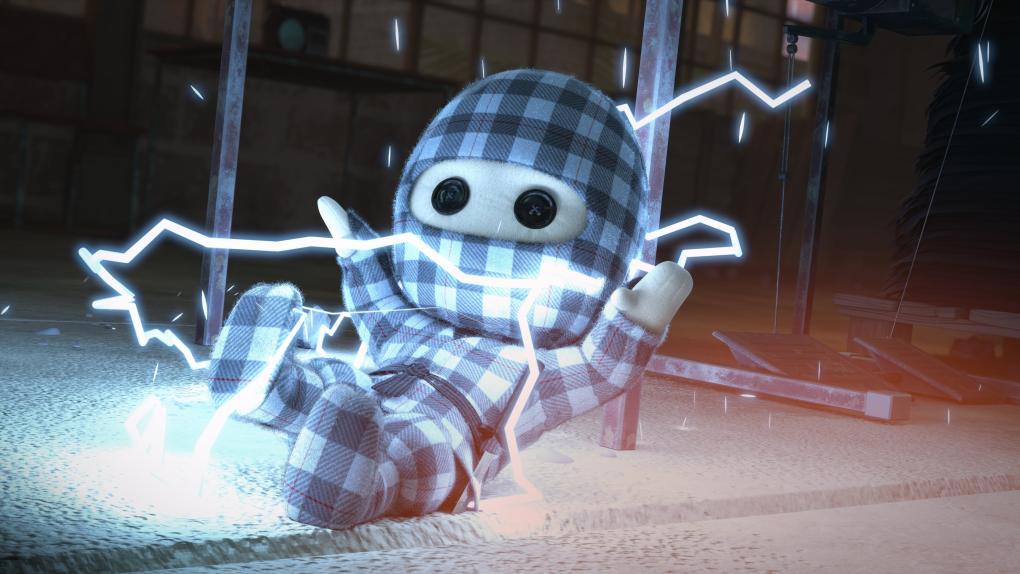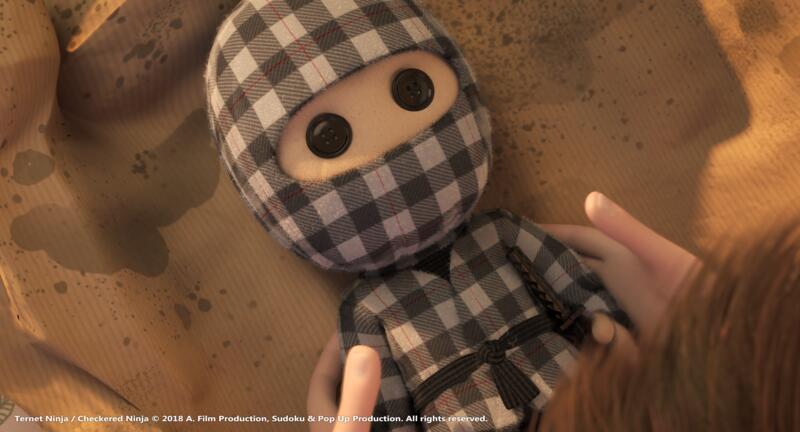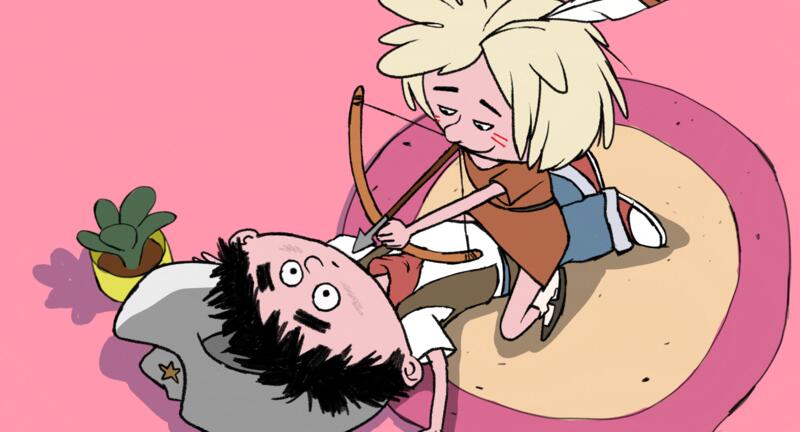With 947,000 admissions, Anders Matthesen and Thorbjørn Christoffersen’s animated feature 'Checkered Ninja' is the biggest blockbuster in Denmark in the last 30-plus years. The film is proving popular abroad, as well.
When the big animation festival at Annecy kicks off on 10 June, 'Checkered Ninja' will be one of 10 select films competing for the main prize.
Trine Heidegaard of Pop Up Production, who co-produced 'Checkered Ninja' with Anders Mastrup of A. Film, reports major international interest in the film. The story of Aske and his ninja action figure has been sold for distribution in more than 50 countries, including France, according to sales agent LevelK. Annecy can help the film reach an even wider audience.
"Annecy is a prestigious festival and can shine an international spotlight on the film," Trine Heidegaard says. "'Ninja' is a universal story of believing in yourself and staying true to your values, which is something most of us can identify with – no matter where we live."
Anders Berthelsen of Ja Film, who produced Dorte Bengtson’s TV series 'Vitello' with Zentropa, has been sensing an international buzz, too, ever since the episode 'Vitello Gets a Yucky Girlfriend' was selected for Annecy’s TV Films competition.
"We've had lots of people writing to us about collaborating because they saw our name in the programme," Berthelsen says.
Part of a European community
Alongside the festival, Annecy also hosts the influential industry market MIFA, a gathering point for a professional audience of production companies, distributors, organisations, TV stations and sales agents.
The Danish presence at MIFA has been growing in recent years, says Marie Bro, a producer who has worked in animation since 1985 and visited Annecy for 35 years running. She credits the Danish bump in large part to the Nordic Animation stand, now in its third year at the festival. There, Denmark, Norway, Sweden, Iceland and Finland team up to present their animation to the big industry players.
Moreover, the WeAnimate magazine, issued for Annecy, helps showcase the range and variety of Danish animation.
"You learn a tremendous amount from attending, and you build a huge animation community where everyone knows everyone else in Europe," Marie Bro says.
She also singles out the Animation Workshop in Viborg, which sends a busload of students to Annecy every year to show the flag internationally. "Everyone in Europe knows what the Animation Workshop brings to the table."
Great value for the money
Danish animation is best known for features, Marie Bro says. Trine Heidegaard agrees that Denmark has had a hand in making animated features capable of competing with leading animation nations like the US, Japan and China.
"I think our stuff keeps getting better looking," Trine Heidegaard says. "There has to be a good story, too, of course, but we really excel at the visuals. Our budgets don’t allow us to get as detailed as Pixar or Disney and show every little movement, but we've got really good at creating a super attractive look. I can tell that the world is interested in finding out how we manage to make films look so good for so little money."
Claus Toksvig Kjær, of the Nørlum animation studio, agrees, "We like to say that we make films for the screen and not for ourselves as a studio. We spend the money where it helps the film."
Co-productions are essential
Claus Toksvig Kjær mentions that Nørlum produced a full 35 minutes of the Oscar-nominated 'Song of the Sea' (with a total running time of 93 minutes), even though his company was the smallest co-producer on the Irish film.
"Denmark is not the cheapest country to produce a film in, in part because we don’t offer tax incentives. So, the fact that we can compete internationally like we do speaks volumes. That’s also why we work so hard to develop our studios and talents," he says, giving a shout-out to his colleagues at Sun Creature, another studio that has worked on major international projects, notably this year’s Coca-Cola Super Bowl commercial.
"Things like this prove that international corporations are willing to place work in Denmark. They wouldn’t do that if they saw any risk of failure."
Claus Toksvig Kjær sees Annecy as essential for getting international partnerships up and running. And for a country like Denmark, it's crucial to invest in co-productions. International partnerships help raise the skill level of Danish filmmakers, among other things.
"Working internationally means working with people who are more skilled than you are. So you learn faster. That’s one reason why co-productions are so exciting. Plus, the films reach a much wider audience."
The Annecy Festival runs from 10-15 June. See more at annecy.org.


